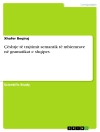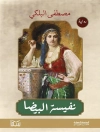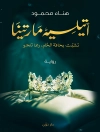Critical and historical discussions of the life and work of Federico García Lorca, Spain’s foremost poet and playwright of the twentieth century, often obscure the author’s more avant-garde dramatic works. In Lorca’s Experimental Theater, Andrew A. Anderson focuses on four of Lorca’s most challenging plays—Amor de don Perlimplín con Belisa en su jardín, El público, Así que pasen cinco años, and El sueño de la vida (previously known as Comedia sin título)—and on the surrounding context in which they came to be written and in only one case performed during his lifetime. While none of Lorca’s plays can be considered conventional, these four works stand out in his corpus for challenging theatrical conventions most forcefully, both thematically and technically.
With discussions of stagecraft, artistic modernism, and the historical avant-garde, Lorca’s Experimental Theater provides detailed interpretive readings of the four plays, surveys their textual and performative history, and examines the most important contemporary influences on Lorca’s creation of these expressive, innovative works.
Over de auteur
Andrew A. Anderson, professor emeritus of Spanish at the University of Virginia, is the author of Configurations of a Cultural Scene: Young Artists and Writers in Madrid, 1918–1930 and many other works. He is the editor of nine critical editions of Lorca’s writings, among them the first scholarly edition of the original manuscript of Poeta en Nueva York.












